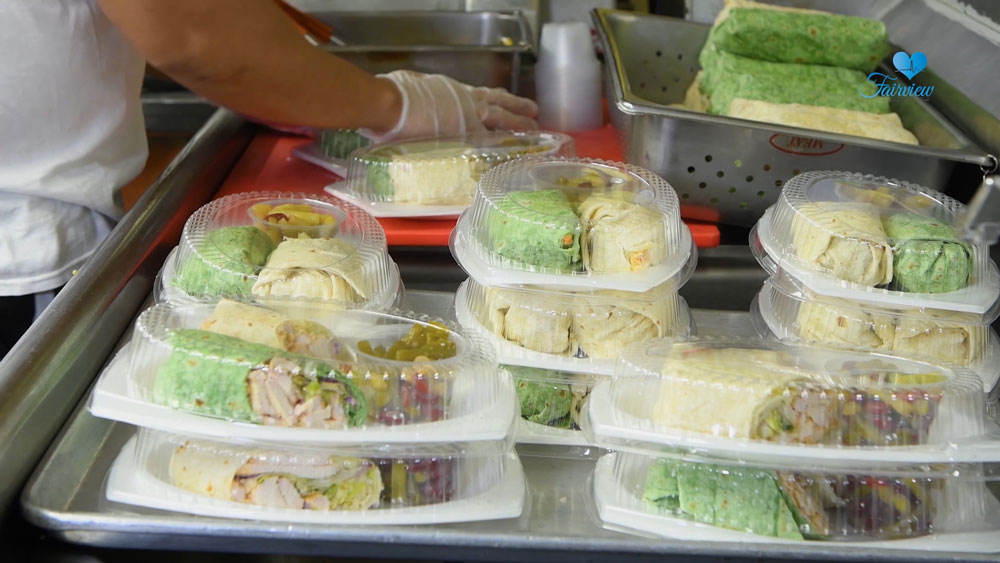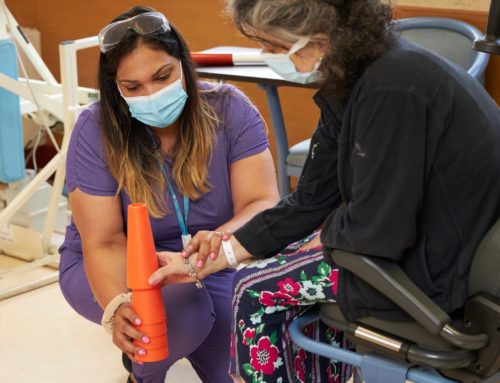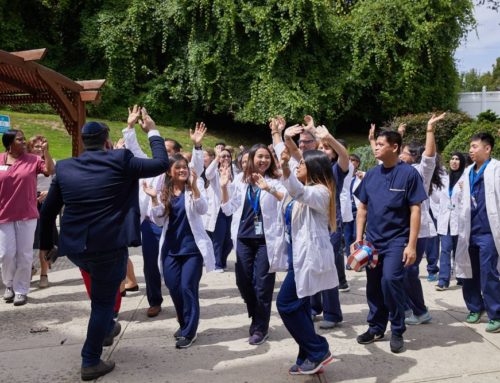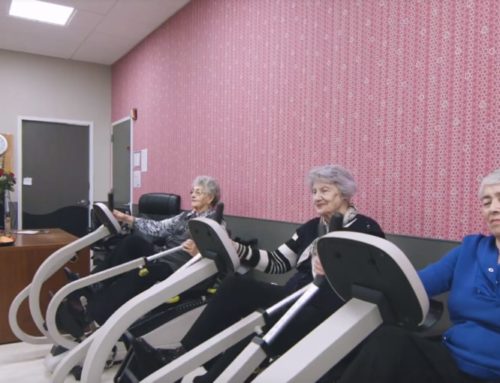Foods to Eat and Avoid After Colostomy Surgery
Life after colostomy may be a little different, sometimes temporarily, and it may take some time to adapt to it. Colostomy surgery involves diverting the end part of the digestive system. One end of the colon is connected to a stoma which is attached to a pouch. The pouch collects feces. Many patients are self-conscious about it. However, with time, they learn to manage their colostomy bag. After colostomy surgery, some online research into a colostomy food guide will be necessary. There you will find many colostomy diet recipes. Below is what we recommend you eat:

Foods you should include in your diet after colostomy surgery
One of the things patients and their families need to learn is what the colostomy diet after surgery should be. It is important to have a colostomy diet plan in place before the patient arrives home from the hospital.
You need to eat a balanced diet and try as far as possible to include all the food groups in your daily food intake.
In the wake of a colostomy, consider consuming some of these foods:
- The live and active cultures in yogurt are good for a recovering digestive system.
- Cranberries, bananas, and applesauce.
- White toast and well-cooked white rice
- Buttermilk, tapioca, and applesauce
Over time, you can start introducing different foods slowly into your diet. The colostomy bag should not represent a permanent dietary obstacle. Try some different foods and work out by a process of elimination what does not work for you.
A guide to foods not to eat when you have a colostomy bag
After colostomy surgery, you need to give your digestive time to recover. During this period, there are foods you should avoid. They may have a negative impact on digestion and affect your colostomy bag.
Stay away from these foods when you’ve recently had colostomy surgery:
- Dairy products, with the exception of small amount of yogurt
- Fried food or any fatty meats, including potato chips
- Foods that are very high in fiber such as wheat bran cereals and whole grain bread
- Sweet treats such as cake, cookies, candy, and chocolate
- Beans, peas, and lentils
Measures to put in place to prevent complications with your colostomy bag
Several complications may present themselves after this surgery. They include ballooning which is a buildup of gas in the colostomy bag. Some gas in the bag is normal, and the bag releases it. But too much gas can be a problem.
There is also pancaking which happens when a vacuum is created in the bag. This usually happens just after the bag has been changed. The best thing to do is to blow into the bag before attaching it to the stoma.
More serious risks include a blockage or a hernia. There can also be internal bleeding, the wound might break open, or an infection can develop. These can have life-threatening implications and should be treated seriously. They can also affect the success of your colostomy surgery.
Final thoughts
After colostomy surgery, you need to take special care of your body and the foods you eat. Follow the instructions and dietary guidelines your medical practitioners recommend. They will help you recover and return to a normal life.
This article contains informational and educational materials and does not replace health or medical advice. For questions or concerns regarding your medical condition or health objectives, speak to a qualified physician or healthcare provider.






Just had emergency hole in colon surgery. I now have a colostomy bag and the smell gags me when I empty it. One place says eat yogurt, buttermilk etc and other places says no diary.. so confusing. Help please
I ordered Devromon which you take after each meal to eliminate odors. It still has a slight smell but much more manageable to change bag. I also take 1 gas x pill after each meal…..
Cottage cheese and kefer make the difference daily to keep your bowels maintained. Good luck!
I have a problem with cheese and dairy foods is this a no for me
I had a colostomy and just went through colostomy reversal two days ago I’m still in the hospital recovering from the reversal I get to leave Tuesday a couple of things that I noticed with some of the things I ate was beans like refried beans or bean burritos or beans at all not like green beans but kidney beans and refried beans made it smell something awful I also found that things like rice and noodles and drinks like soda or juice would usually affect it quite a bit also I was also informed that having diverticulitis which is a common bowel issue u aren’t allowed to have things like corn nuts or seeds i ate mostly everything tho that I could think of just trying to eliminate what worked for me and what didn’t dairy and cheese weren’t good because I love me a ice cold glass of milk sometimes with my food or just to eat some cheese as a snack and the more of those that I ate or drank the more my ostemy would have super hard stool and I would break a seal and have an accident to where not only did I have to replace the bag it’s self but also the wafer and the barrier ring and the whole nine yards really it’s trial and error on what u can and can’t have they do have odor drops that u can get there in a little bottle u put 5 to 10 drops in a bag when u change it and u put it on and it stops the odor I never believed it until I tried it myself and if u have a self esteem problem from having one than this product maybe best for u because it’s definitely a self esteem and confidence booster to use them I hope things with your colostomy works out for u and I hope u can find some of the things I mentioned helpful to be able to help u reach your goal of having reversal if that’s a possibility for u having mine reversed was one of the best days of my life ei couldn’t have asked for a better care team at the hospital that did both surgeries or for a better husband than what I have now none of them left me they were all there for me through the whole process and once it’s done it makes u feel like a whole new woman and like u can change the world
If you’re bothered a lot by the smell, You could try wearing closed bags, which you would change 1 to 3 times a day, rather than wearing the drainable kind. I used to wear the drainable bags, but I much prefer the closed bags, as I find them easier to take off and dispose of than rinsing and cleaning a smelly bag several times every day. When you change a closed end bag, you just have to clean any excess poop off around the wafer ring with some toilet paper, after you take the used bag off, then dispose of that in the commode or into a garbage bag with the dirty colostomy bag, then snap a clean bag onto the ring and you’re done. I find It’s faster, more freeing, and less smelly than emptying and rinsing a drainable bag several times a day. I had a colostomy last year. It’s an adjustment but there are far worse things. God bless and Good luck to you.
I agree Nancy, I’ve had my stoma since August lastt year.
How is your diet?
You appear to be saying put bag containing poop in household waste. Where I live, Bedfordshire UK, the local Council state the poop is to be put down the wc or equivalent and only the emptied stoma bag goes inside a garbage bag into the household waste.
Well, I dont care. If it’s comfortable, then I’m doing it. Screw the counsel.
I like you. You are perfectly correct and this is your journey and it is difficult enough already without minding your P’s and Q’s. Well said and it all goes to landfill, and the contents of your stoma bag is totally biodegradable.
Try a deodorizer in bag. At first, I wore a mask. There is also a spray hospitals use for odors you can buy online.
I use a drainable bag. After I drain the bag I wipe out the opening and then add a teaspoon of baking soda. I think it helps with the odor.
Our colostomy nurse suggested adding Scope mouthwash to the bag to help with the odor.
How much scope do you add? And, do you add the scope after each time you empty the bag?
There is odor drops u can buy
My wife is a retired nurse & came up with a great way of avoiding the bad smell as follows:
1. Get a graduated 3 sided cylinder from a drug store or medical supply store.
2. Fill it to the 250ml mark.
3 get a product called Poo Poree, a spray that you can use for this application or in your toilet. You spray it 2-3 times into the cylinder & 3 times in the toilet.
4. You open the bottom of your colostomy bag and start draining it being careful to keep the bag out of the water as it rises. NO SMELL as the spray covers the water with a thin oily film, sealing the odors below the water’s surface.
5. I then go through my bag cleaning routine and reseal the bag & wipe it down with Clorox wipes.
(You can find the spray just about any where. We get ours at Costco.)
6. Empty the contents of the cylinder into the toilet pouring carefully so as not to splash.
7. Rinse the cylinder & wipe it with Clorox wipes the spray the cylinder with Clorox spray or Fabreeze.
Works like a charm. I use this at home & in our motorhome. My wife never knows when I empty the bag anymore. I don’t even put the vent fan on anymore! Try it, you’ll never use anything else again.
Thanku for Your advice, my Dad had surgery last week and Your advice is very valuable Bless You all…
I use disposable colostomy bags and I just give a couple of squirts of fabreze into the black disposable bag before I take it off.
To avoid splashing when emptying your bag..place 3 or 4 sheets of toilet paper in the toilet then drain your colostomy bag..presto no splash
Mouthwash in the bag works great. It really cleans the bag and no smell.
I use essential oils in my bags and coconut oil
what foods do you eat?????
Surgery was Nov 24, so I’m learning from all of your posts. Thanks. Suggestions on holiday sweets to avoid?
what liquids can I drink that make no poop at all . All I have been having is clear liquids. the colostomy isn’t working . I can have nothing that makes poop. so can I put salt and pepper in my broth? the food is making a blockage there is no where to put the food. So what makes poop ?
I use a combination of the colostomy deodorant and lavendar scented baby oil to help combat the odor. And when I change my bag I spray the bag itself with a body spray or my fave perfume. These work well for me. Someone mentioned to me about putting an Altoid in my bag between emptying. That seemed a little out there for me.
hiya just about to go through this I think I have rectal cancer 10cm from anus so I recon the bag is definitely gunna happen. Bit sad poop makes me gag and I am scared shitless but understand it’s gunna happen. anyone got any tips on diet, care etc. I’m even thinking I will live my life out without surgery to avoid this BUT I REALLY WANT TO LIVE!!!!